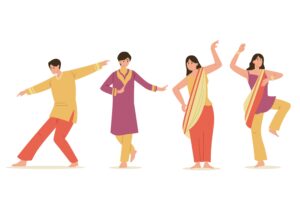In this article we going to read about music our website provide easiest way to learn about your topic. Thank You!
Music is a form of art that uses sound to create patterns that people enjoy listening to. It combines different elements like melody, rhythm, and harmony to make a pleasing and sometimes emotional experience.
Key Parts of Music:
- Melody: This is the main tune of the song, the part you often hum or sing along to.
- Rhythm: This is the beat of the music, the part that makes you tap your foot or dance.
- Harmony: These are the background notes that support the melody, making the music sound richer and fuller.
- Timbre: This is the unique sound of an instrument or voice, which makes it possible to tell them apart.
- Dynamics: This is how loud or soft the music is, adding emotion and variety.
Why is Music Important?
- Emotional Expression: Music can express feelings and emotions. It can make you feel happy, sad, excited, or relaxed.
- Cultural Significance: Music reflects the culture and traditions of a place, telling stories and preserving history.
- Social Connection: Music brings people together. Concerts, festivals, and even just singing with friends are ways music creates bonds.
- Entertainment: Music is a fun and enjoyable way to pass the time. People listen to it while driving, working out, or just relaxing.
- Therapy: Music can help people feel better. It is used in music therapy to help with stress, pain, and emotional issues.
Types of Music:
There are many different types of music, known as genres. Some popular genres include:
- Classical: Traditional music that is often played by orchestras.
- Jazz: Music with lots of improvisation, often featuring instruments like the saxophone and piano.
- Rock: Music with a strong beat, often featuring electric guitars.
- Pop: Catchy music that is popular with many people.
- Hip-Hop: Music with rhythmic speaking called rapping.
- Electronic: Music made with electronic instruments and computers.
Music is a universal form of art that combines sounds and silences in a  structured manner to create a composition that can be appreciated for its aesthetic, emotional, and cultural value. It involves elements such as melody, harmony, rhythm, and timbre, which are organized in various ways to produce
structured manner to create a composition that can be appreciated for its aesthetic, emotional, and cultural value. It involves elements such as melody, harmony, rhythm, and timbre, which are organized in various ways to produce  different styles and genres. Music can be vocal, instrumental, or a combination of both, and it can be created and performed in countless ways, from solo performances to large orchestras and from traditional acoustic settings to modern digital productions.
different styles and genres. Music can be vocal, instrumental, or a combination of both, and it can be created and performed in countless ways, from solo performances to large orchestras and from traditional acoustic settings to modern digital productions.
The Transformative Power of Music: An Exploration of Its Impact and Evolution
Music is an art form that transcends boundaries, cultures, and languages. It has the power to evoke emotions, bring people together, and inspire change. From the rhythmic beats of ancient drums to the sophisticated compositions of modern symphonies, music has evolved over millennia, adapting to the times and influencing society in profound ways.
The Emotional Connection
One of the most remarkable aspects of music is its ability to connect with our emotions. Whether it’s the joy of a lively dance tune, the melancho ly of a soulful ballad, or the adrenaline rush of a powerful rock anthem, music speaks to our hearts. Scientists have found that music can trigger the release of dopamine, the brain’s pleasure chemical, enhancing our mood and even alleviating pain. This emotional connection makes music a universal language, capable of expressing what words often cannot.
ly of a soulful ballad, or the adrenaline rush of a powerful rock anthem, music speaks to our hearts. Scientists have found that music can trigger the release of dopamine, the brain’s pleasure chemical, enhancing our mood and even alleviating pain. This emotional connection makes music a universal language, capable of expressing what words often cannot.
Cultural Significance
Music is deeply rooted in culture and tradition. Every society has its unique musical heritage, from the tribal chants of indigenous communities to the classical music of European composers. 
These musical traditions serve as a reflection of a culture’s history, values, and identity. For example, African rhythms have significantly influenced genres like jazz, blues, and hip-hop, while the classical music traditions of India have inspired countless artists worldwide. By studying music, we gain insight into the diversity and richness of human civilization.
The Evolution of Music
The history of music is a journey through time, marked by continuous innovation and transformation. In ancient times, music was primarily vocal, accompanied by simple instruments like flutes and drums. The Middle Ages saw the development of more complex musical forms, with the introduction of notation systems and polyphony. The Renaissance and Baroque periods brought about a flourishing of musical creativity, with composers like Bach, Vivaldi, and Mozart pushing the boundaries of composition.

The 20th century witnessed an explosion of musical genres, driven by technological advancements and cultural shifts. The advent of recording technology revolutionized the music industry, making music accessible to a global audience. Genres like jazz, rock, pop, and electronic music emerged, each with its distinctive style and cultural impact. Today, digital technology continues to shape the music landscape, enabling artists to create, distribute, and collaborate in ways that were unimaginable just a few decades ago.
The Healing Power of Music
Beyond entertainment, music has therapeutic benefits. Music therapy is a recognized field that uses music to address physical, emotional, cognitive, and social needs. It can help reduce stress, improve memory, and promote overall well-being. For individuals with conditions like autism, dementia, and depression, music therapy can be a powerful tool for communication and healing.
The Future of Music
As we look to the future, music will undoubtedly continue to evolve. Advances in artificial intelligence and virtual reality are opening up new possibilities for music creation and consumption. AI composers can generate original pieces, while VR can provide immersive concert experiences from the comfort of our homes. However, the essence of music—the human touch, creativity, and emotional expression—will always remain at its core.
In conclusion, music is more than just a form of entertainment; it is a fundamental aspect of human experience. Its ability to connect us emotionally, reflect our cultures, evolve with the times, and heal our minds and bodies makes it an invaluable part of our lives. As we continue to explore and embrace the power of music, we celebrate its timeless ability to inspire and unite us all.
Conclusion:
In essence, music is a dynamic and multifaceted art form that plays a significant role in human life. It enriches our experiences, connects us with others, and provides a means of expression that transcends words. Whether experienced live in concert halls, recorded in studios, or streamed online, music continues to be a vital and cherished part of our existence.
